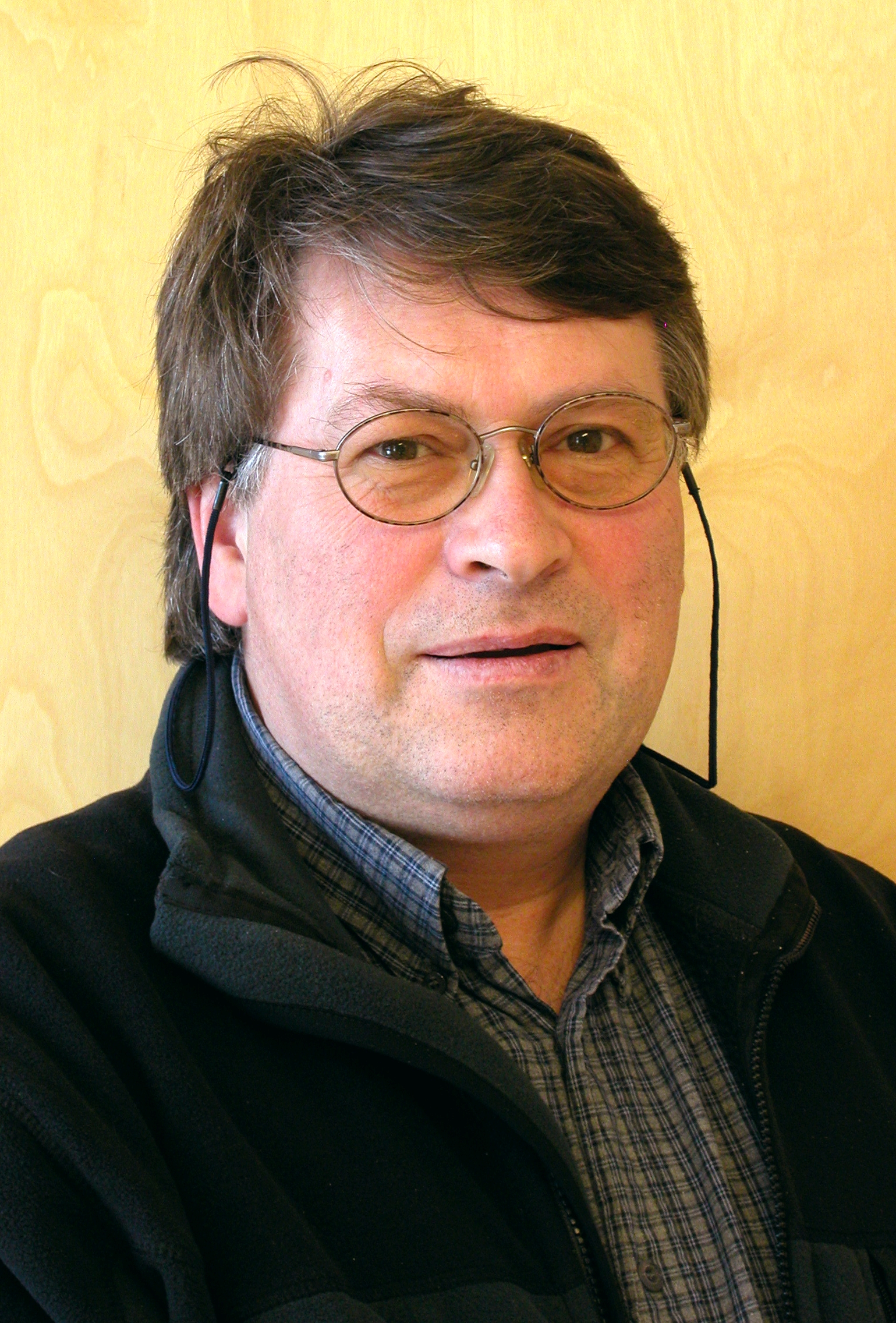From no women to balance
In just a few short years, they saw the number of women in permanent academic positions go from zero to four. Three of them are now professors. “We needed to strengthen our department and realized that the measures established by the central administration held great potential,” explains Jan-Eirik Angell Killie of the Norwegian College of Fishery Science.

Two years ago, prior to the merger of the University of Tromsø and Tromsø University College, one academic department showed impressive results from its gender equality efforts. The Department of Marine Biotechnology (IMAB) went from having one female employee in a part-time position in 1999 to boasting of gender balance among its leadership and academic employees. For this achievement the department won the Gender Equality Award from the Ministry of Education and Research.
Gender-equality measures were available
Today the IMAB no longer exists; it has been incorporated into the Norwegian College of Fishery Science, a department of the University of Tromsø.
But the leadership is the same. Jan-Eirik Angell Killie, who began as the head of the IMAB in 2001, has been a driving force behind the efforts to recruit more women.
“At precisely that time and in subsequent years we saw a dramatic increase in and focus on the recruitment of women to the universities from the political sphere, both locally and nationally. For instance, the national budget for 2001 contained professorships earmarked for women. We fought to get one of these,” he explains.
“In other words, for us the issue was mainly about increasing the number of positions as such, and then we made use of the measures that were available.”
Not the first time
It was not that the department had not tried to recruit women before.
“I know of one case at the end of the 1990s when a position had been reserved for female applicants. At the time there were no qualified women who applied, and the position had to be advertised again, this time without earmarking it for women.”
Just two years later the situation was about to change. Killie saw that there were qualified women in the recruitment pool. The earmarked professorship was soon followed by two other positions which were also filled by women.
“The second case where we set gender guidelines was for a position we already had that had become vacant due to turnover. For the third position, though, we did not put any gender guidelines in the job advertisement. A highly qualified woman got the job anyway.”
Raising awareness
Jan-Eirik Angell Killie thinks that the hiring processes caused the leadership in the department to become more cognizant of gender issues.

“Of course I understood there was a risk in reserving positions for one gender since we could have a problem finding applicants who were sufficiently qualified. All leaders want an applicant pool that is as broad and high calibre as possible, quite simply because we want the best people. By the same token, it has been important for us to have women in academic positions who can serve as supervisors and role models in order to encourage girls to pursue an education in this field.”
“When I look back now, there is little doubt that our choices have given us many talented employees who have enhanced the department both academically and socially,” says Killie.
Good working environment
Edel O. Elvevoll came to the department as the first female professor.
“There was a fantastic group of people in the department. They managed to create a good working environment where people felt comfortable and the women wanted to stay,” she explains.
The IMAB took advantage of a number of central gender equality measures at the University of Tromsø. Several of the women received qualifying grants and extra operating funds. The department also took part in a mentoring project and received funding to recruit women to professor II positions.
Although Elvevoll was already a professor when she came to the IMAB, she believes that the measures had a crucial impact on the women in the group.
“The leadership of the IMAB went directly to the women who qualified for the funding and encouraged them to apply. This made the women feel that they were seen. The departmental leadership worked with potential problems the women might face, tried to understand these and put them in context.”
Continuing the work
Today Elvevoll is the highest ranking leader. Following the merger of the University of Tromsø and Tromsø University College, the Norwegian College of Fishery Science became a department under the Faculty of Biosciences, Fisheries and Economics, where Elvevoll is the Dean.
She explains that the faculty is continuing the excellent work begun at the IMAB that encourages female employees to apply for central funding.
“The women here should focus on gaining additional qualifications, not sit and look for all the measures designed for women. For this reason we need leaders who make sure that women are aware of the qualifying grants and that they actually apply for them. It is also easier to apply if your boss asks you to,” she says.

Elvevoll is pleased to have departmental leaders who have experience with conducting effective gender equality work.
“Promoting gender equality is viewed as a matter of course here. It is also an issue that comes up all the time, including in connection with committee appointments and job advertisements.”
Enjoying their work
Gender equality is not a cause that Elvevoll burns for. She is most interested in talking about her discipline, and she believes this is also important for the recruitment of women.
“I think what works best of all is that others see that there are women here and that we are enjoying our work. It needs to show that the work situation is better here than at other places.”
This is a key point, Elvevoll believes, because the women who leave academia do so for rational reasons, often because they are offered better working conditions by other employers.
“Our problem is that many more women than men with doctoral degrees leave academia. I think this has to do with the nature of the employment system. In many fields people are not offered permanent positions until they are well over 40 years of age. It is not very enticing to go from one temporary position to the next, often lasting only a few months each.”
“As long as we don’t do anything about the preponderance of temporary positions, women are sensible enough that they will choose to work other places.”
Department is gender balanced
In Killie’s department, however, recruiting women is no longer a problem. Today the majority of doctoral students and post-doctoral researchers are women.
“It was as if we only had to make it over the first hump,” says Killie about recruiting women to the department. Today it happens on its own. He is almost starting to wonder whether they should soon begin to implement positive differential treatment for male applicants.
“In my opinion, a workplace that is nearly gender balanced is much more interesting than one dominated by one gender, regardless of field. This is how you can bring opposing viewpoints into scientific discussions.”
Translated by Connie Stultz.
In this series, we present some of the leaders from the university and university college sector in Norway who have been successful in changing the gender balance in their environments.
Jan-Eirik Angell Killie is Dean of the Norwegian College of Fishery Science, which is a part of the Faculty of Biosciences, Fisheries and Economics at the University of Tromsø.
Jan-Eirik’s advice: Use the grapevine and various networks when advertising jobs. Ensure that talented candidates are aware of vacant positions.
Edel O. Elvevoll is Dean of the Faculty of Biosciences, Fisheries and Economics at the University of Tromsø.
Edel’s advice: In addition to general gender equality efforts, my advice is to convey that the work you are doing is fun, that you are doing something you enjoy. I think this is the most important way to motivate people to stay in this sector.
In 2007, the IMAB shared the Gender Equality Award presented by the Ministry of Education and Research with the Norwegian University of Science and Technology (NTNU). The department was selected for its efforts to increase the percentage of women on its research staff. The document explaining the reasoning behind the selection stated that the IMAB had ensured that women made inroads into the academic environment in a relatively short period of time through a joint effort involving clear priorities, targeted measures, deliberate actions and university policy measures.
In addition to earmarked positions, the department also used academic mentoring schemes and other local gender equality measures.
